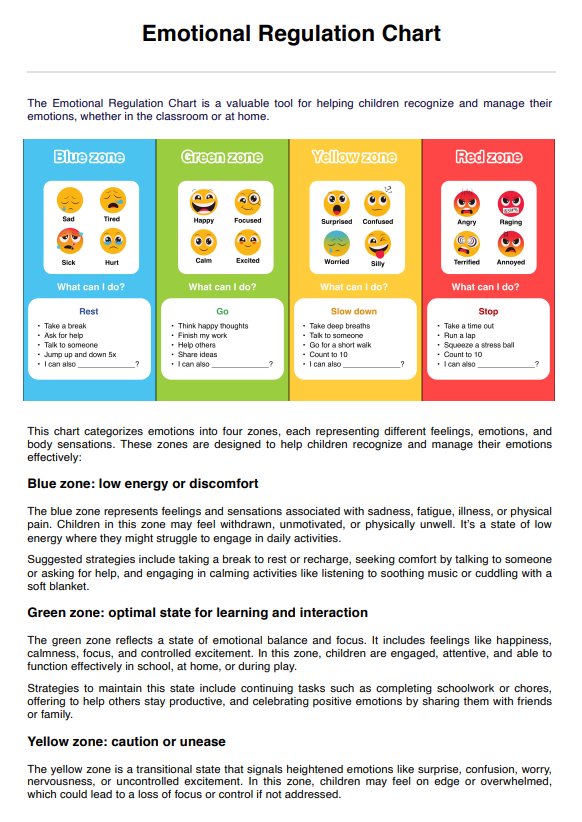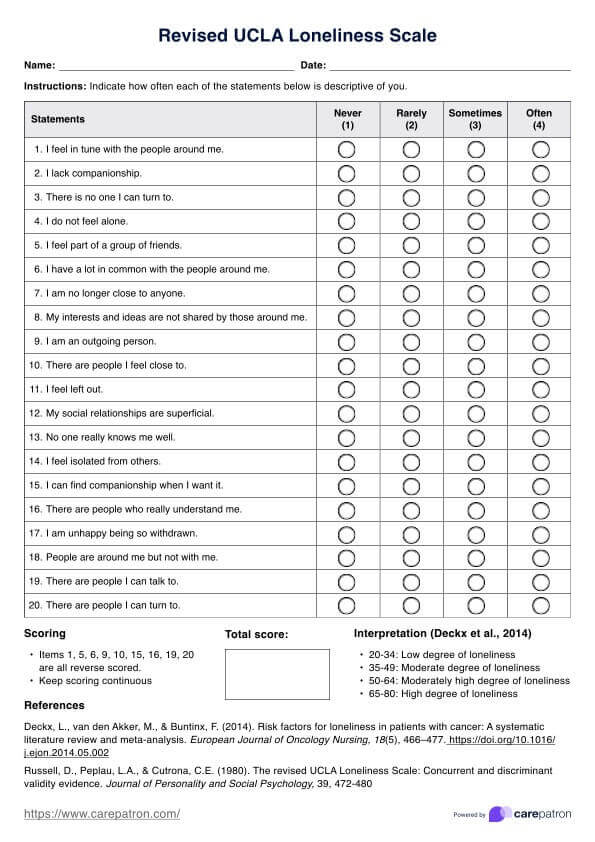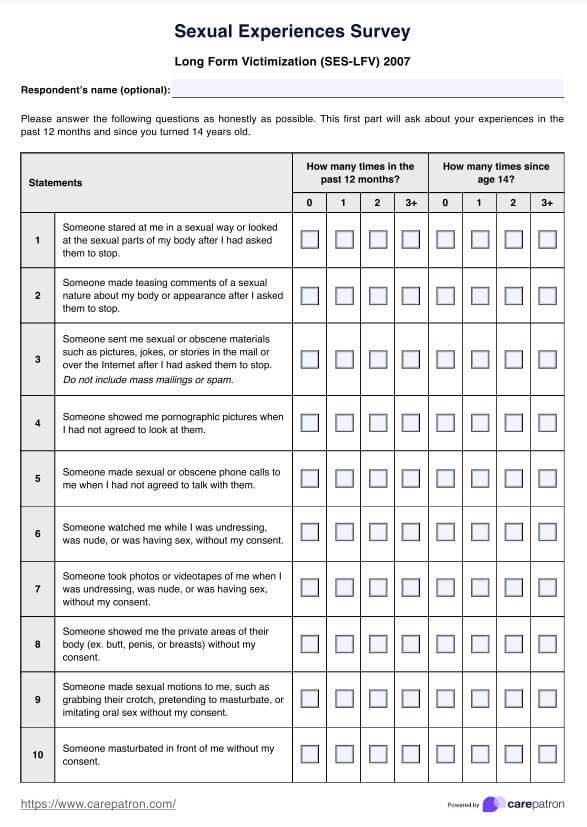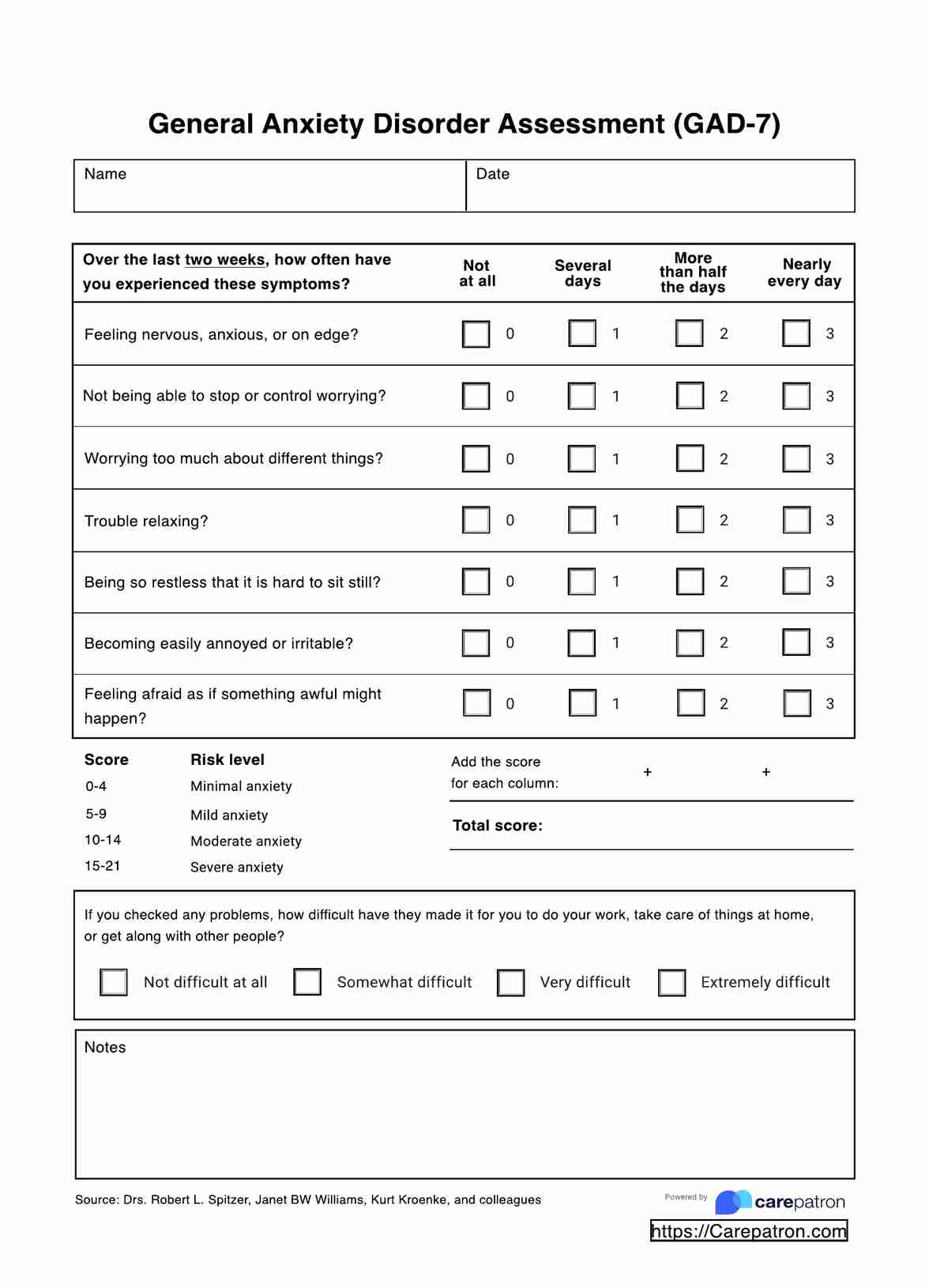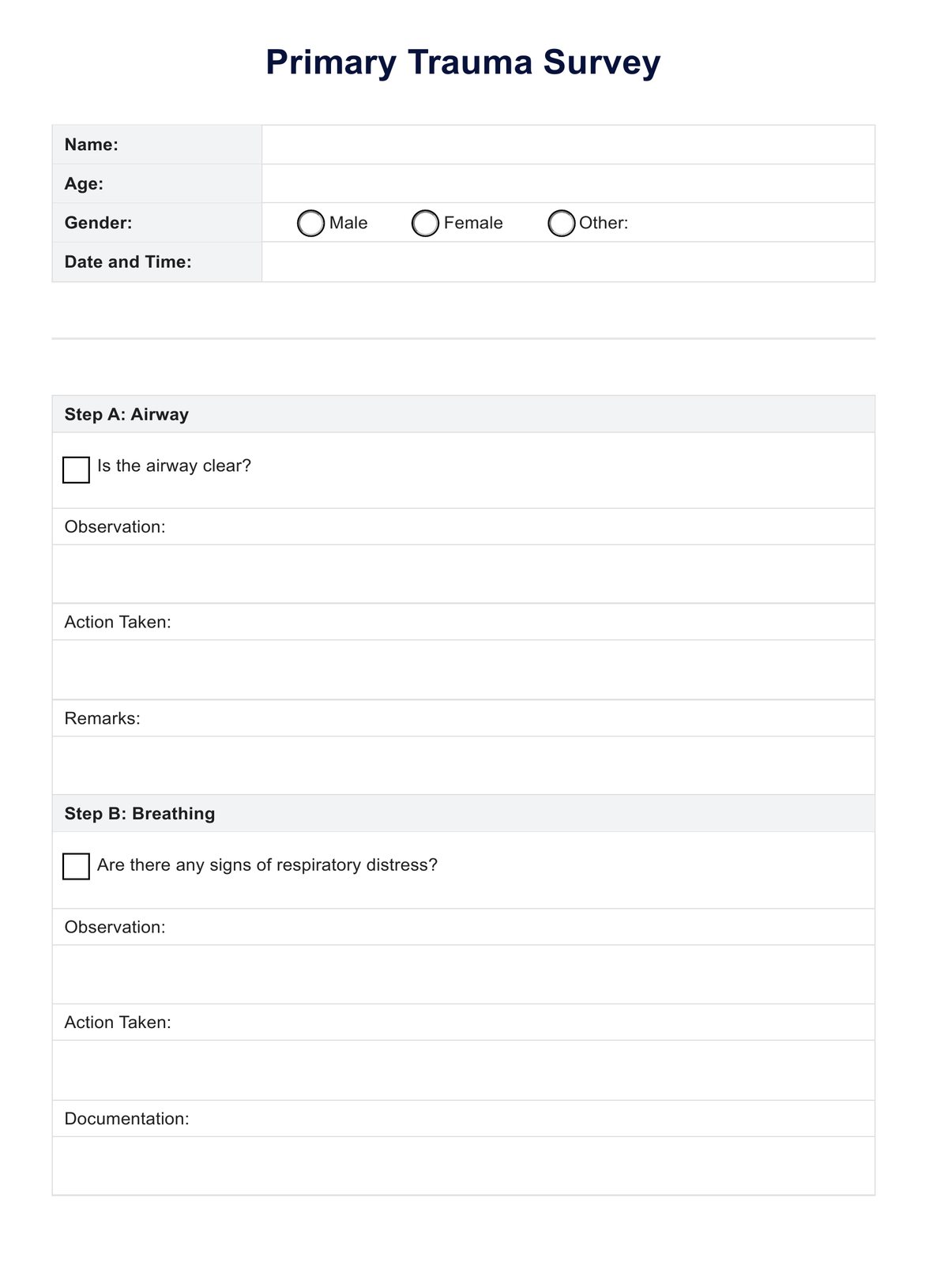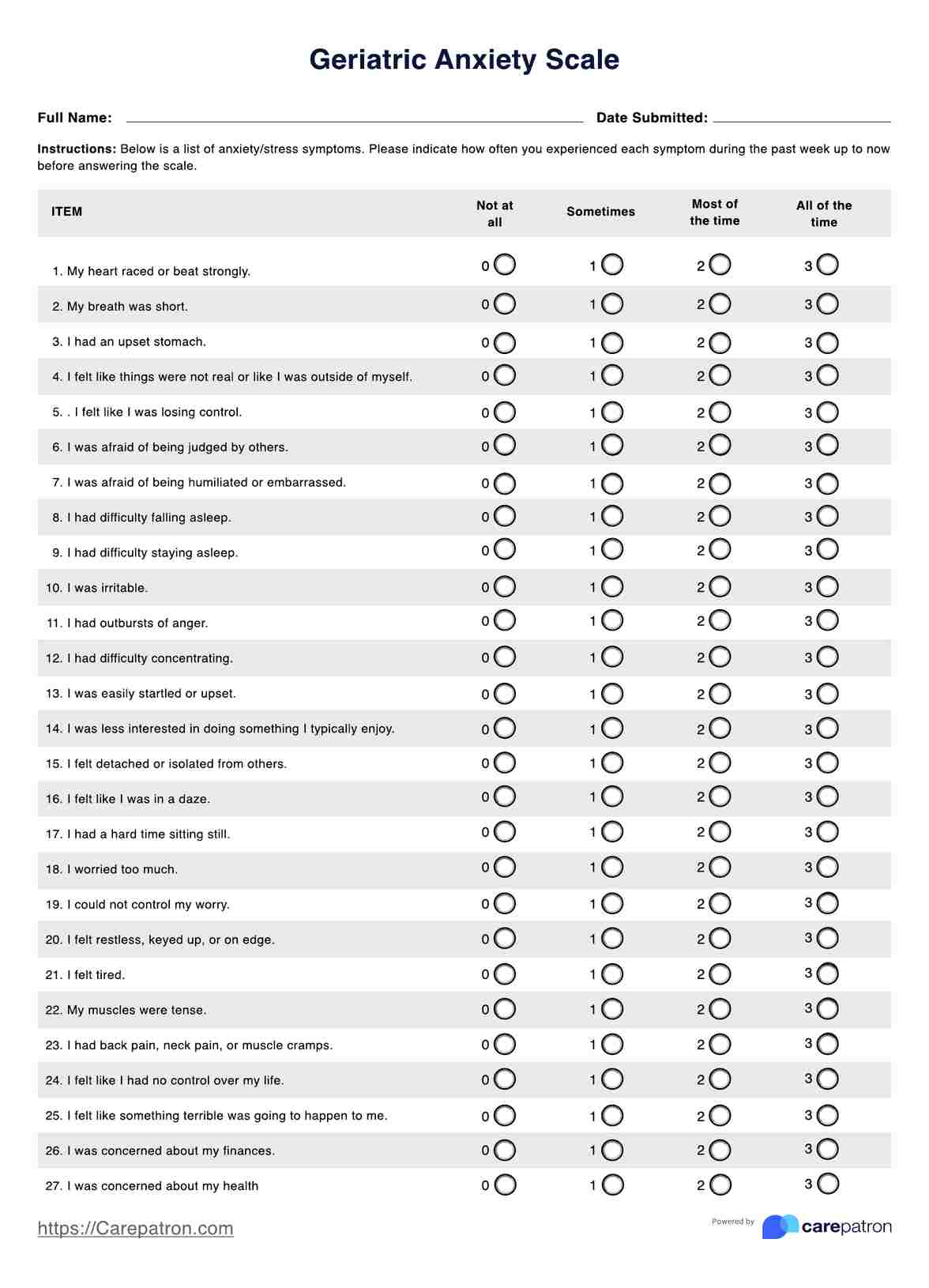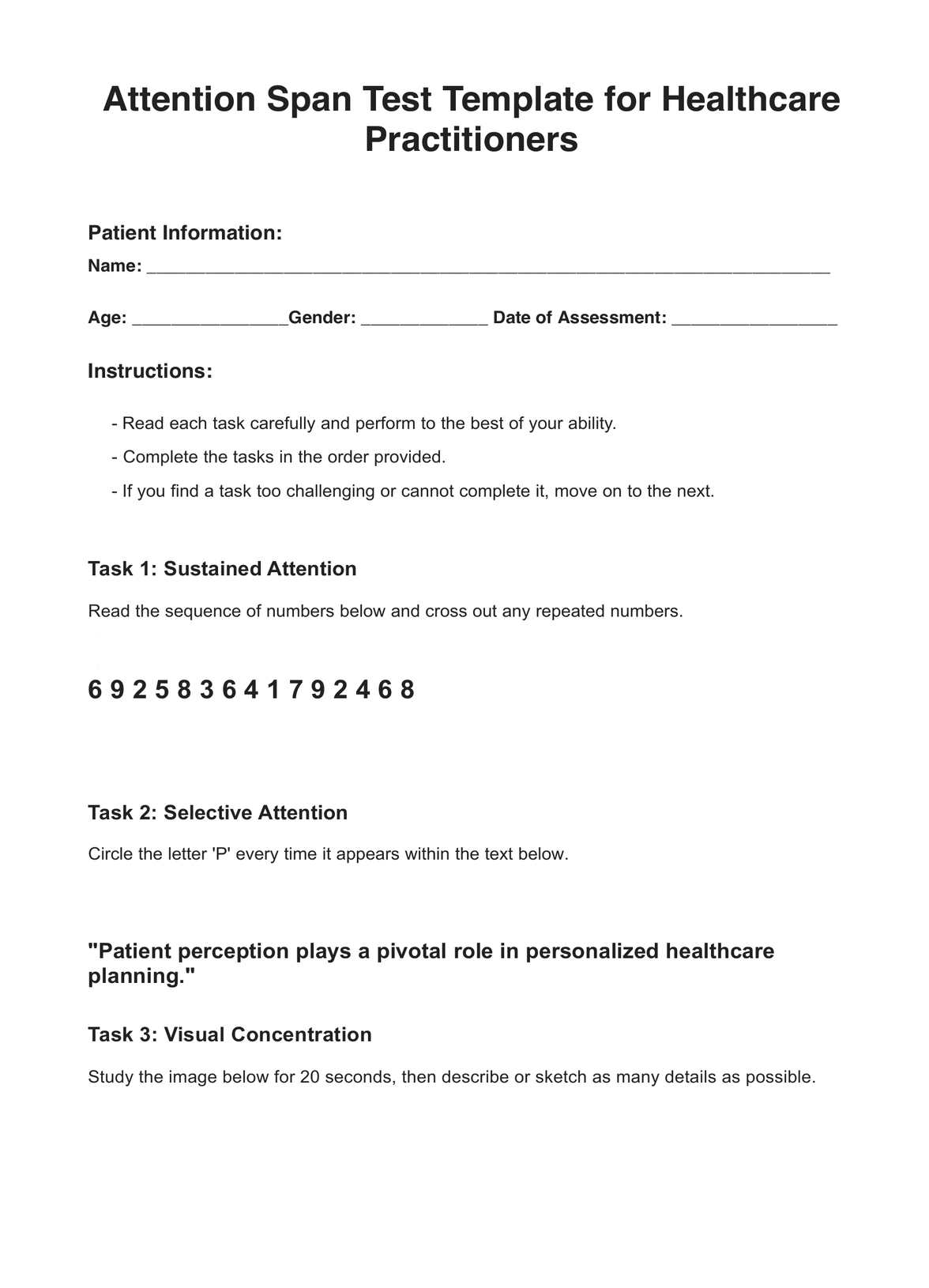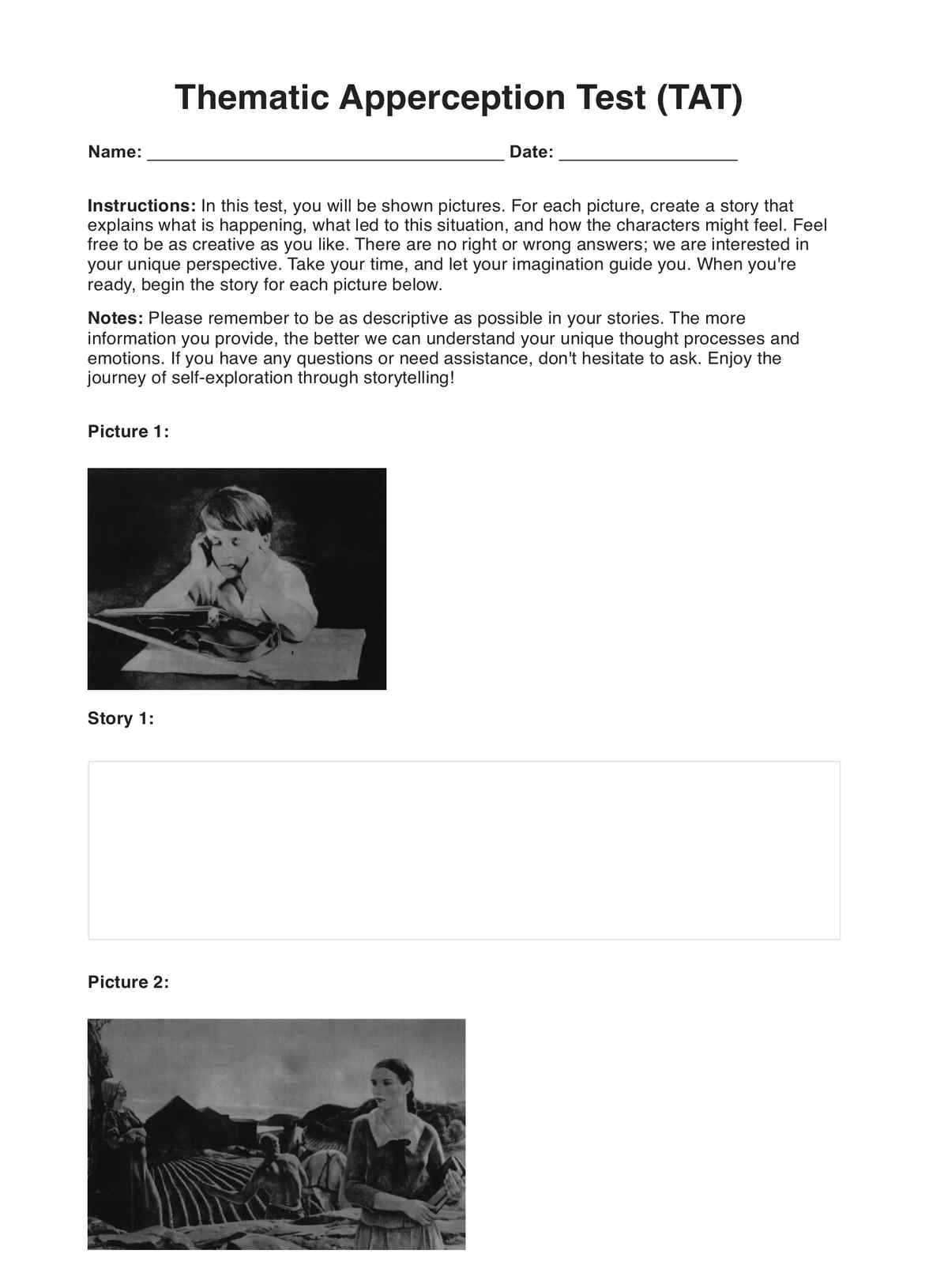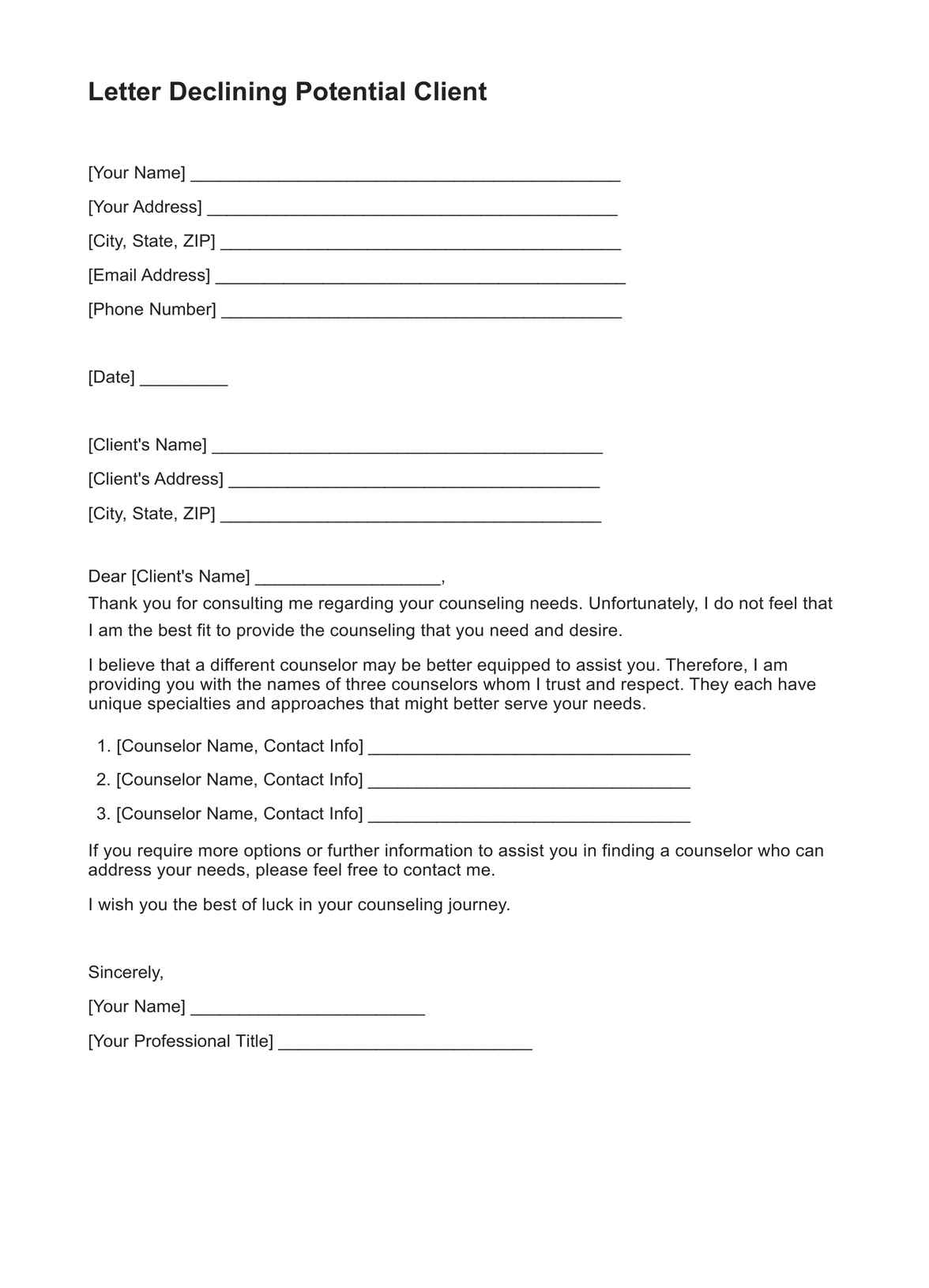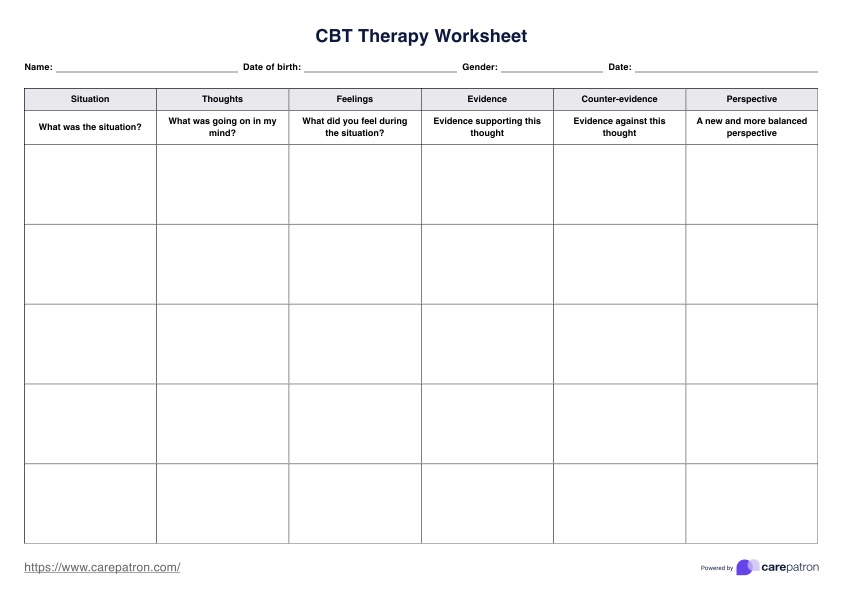Observing and Accepting Your Emotions DBT Worksheet
Enhance emotional well-being and practice mindfulness and self-acceptance for resilience with the Observing and Accepting Your Emotions DBT Worksheet.


What is Dialectical Behavior Therapy?
Dialectical Behavior Therapy (DBT) is a guiding light for those wrestling with the turbulence of intense emotions. Conceived by the visionary Dr. Marsha Linehan, DBT offers a lifeline to individuals navigating complex emotional terrains, especially those dealing with challenges like borderline personality disorder (BPD). It's akin to providing them with an emotional North Star.
Envision as a toolbox imbued with superhero-like skills. Distress tolerance, fortified by mindfulness and relaxation techniques, shields against overpowering emotions. Interpersonal effectiveness functions as a communication potion, balancing self-assertion and respect for others. Like a hidden treasure, mindfulness anchors you in the present, akin to meditation and yoga. Emotion regulation acts as a compass, aiding the navigation of emotional seas by identifying, comprehending, and accepting feelings.
DBT isn't just a theoretical concept – it takes shape through a combination of individual sessions, group interactions, and even remote coaching. Beyond addressing BPD, DBT extends its reach to those grappling with self-harm, eating disorders, anxiety, and sadness. When it comes to emotions, DBT isn't just about managing them; it's about equipping individuals with tools to decipher emotional triggers, employ effective coping mechanisms, and sail through emotional currents with mastery. In the grand tapestry of emotional self-mastery, DBT is a trusted companion, helping individuals navigate the peaks and troughs of their feelings with resilience and grace.
Observing and Accepting Your Emotions DBT Worksheet Template
Observing and Accepting Your Emotions DBT Worksheet Example
How to use the Observing and Accepting Your Emotions DBT Worksheet
The Observing and Accepting Your Emotions DBT Worksheet is a practical tool designed to help you enhance your emotional awareness and develop the skills to observe and accept your feelings without judgment. Rooted in the principles of Dialectical Behavior Therapy (DBT), this worksheet guides you through a step-by-step process to navigate your emotions in a mindful and compassionate manner.
To use this worksheet effectively, follow these six steps:
Step 1 - Obtain the Template
Download or print out the "Observing and Accepting Your Emotions DBT Worksheet." Find a quiet and comfortable space where you can focus without distractions.
Step 2 - Mindful Observation
Close your eyes, take a deep breath, and turn your attention inward. Identify the emotions you are currently experiencing without analyzing or judging them. Note down these emotions on the worksheet.
Step 3 - Describing Emotions
In the designated space, describe each emotion you identified in the previous step. Use descriptive language to capture the intensity, texture, and quality of each feeling.
Step 4 - Accepting Without Judgment
Acknowledge your emotions as valid responses without trying to change or analyze them. Write down a statement of acceptance for each emotion you identified. This step promotes self-compassion and non-judgmental awareness.
Step 5 - Radical Acceptance
Embrace the concept of radical acceptance, where you fully acknowledge your emotions' reality, even if they are uncomfortable. Challenge any beliefs that hinder acceptance and affirm your right to experience these emotions.
Step 6 - Self-Compassion and Release
Offer yourself kindness and understanding for experiencing your emotions. Write a self-compassionate message and practice letting go of tension and resistance associated with these feelings. Imagine your emotions as leaves floating downstream, symbolizing release.
When would you use this Observing and Accepting Your Emotions DBT Worksheet?
The Observing and Accepting Your Emotions DBT Worksheet proves invaluable in numerous scenarios where individuals seek to cultivate emotional awareness and navigate their feelings more effectively. It becomes particularly relevant during periods of heightened emotional intensity, such as when facing stress, anxiety, sadness, or interpersonal conflicts. Utilizing this worksheet during moments of emotional turmoil empowers individuals to step back, observe their emotions without judgment, and practice self-acceptance.
Healthcare professionals, including therapists, counselors, and psychologists, can incorporate the "Observing and Accepting Your Emotions DBT Worksheet" into their therapeutic toolkit. They can introduce this worksheet to clients who grapple with emotional regulation difficulties, offering them a structured approach to process their feelings. By employing the worksheet, professionals can encourage self-compassion, mindfulness, and non-judgmental acceptance, aligning with the principles of Dialectical Behavior Therapy.
Moreover, individuals undergoing Dialectical Behavior Therapy can integrate this worksheet into their treatment regimen. It serves as a hands-on tool for practicing the skills they learn in therapy sessions, fostering consistency and reinforcing emotional growth. Ultimately, the worksheet aids individuals in establishing a healthier relationship with their emotions, leading to improved emotional well-being and resilience.
Also, use the Dialectical Behavior Therapy Template that offers a structured approach to addressing emotional regulation and interpersonal skills, while the Relaxation Techniques Template provides practical strategies for stress management. Combining these templates can help create a comprehensive treatment plan that supports both emotional and physical well-being. These resources are valuable for developing effective therapeutic interventions and fostering client progress.
What are the benefits of using this Observing and Accepting Your Emotions DBT Worksheet?
Practicing emotional awareness and acceptance through the **free Observing and Accepting Your Emotions DBT Worksheet** can yield numerous positive outcomes backed by research and therapeutic principles.
Enhanced Emotional Regulation
Engaging with the worksheet empowers individuals to observe their emotions without judgment. Research supports that such non-judgmental awareness fosters better emotional regulation, reducing impulsive reactions and promoting healthier responses to triggers.
Improved Self-Compassion
The worksheet encourages self-compassion by acknowledging emotions without criticism. Studies suggest that self-compassion promotes psychological well-being and reduces negative emotional states, contributing to greater emotional resilience.
Mindful Decision-Making
Utilizing the worksheet facilitates mindful decision-making. Research indicates that practicing mindfulness enhances cognitive flexibility, allowing individuals to make more reasoned and effective choices even in emotionally charged situations.
Strengthened Interpersonal Relationships
By accepting and understanding one's emotions, individuals can communicate their needs more effectively. This can positively impact relationships, fostering better understanding and empathy.
Reduced Emotional Distress
Research in the field of Dialectical Behavior Therapy underscores that practicing emotional acceptance reduces emotional distress, offering individuals the tools to manage intense emotions constructively.
Consistency in Therapy Progress
For those in therapy, the worksheet serves as a bridge between sessions, ensuring continuous practice of DBT skills. Regular use reinforces therapeutic learning and facilitates progress.
Incorporating the Observing and Accepting Your Emotions DBT Worksheet into one's routine can be transformative, leading to improved emotional well-being, healthier relationships, and enhanced emotional self-regulation.
Commonly asked questions
Completing the Observing and Accepting Your Emotions DBT Worksheet typically takes around 20 to 30 minutes, depending on individual pace and reflection. It's designed to be a concise yet effective exercise for enhancing emotional awareness and acceptance.
The worksheet aids individuals by providing a structured process to observe and accept their emotions without judgment. By engaging in this practice, individuals develop improved emotional regulation, enhanced self-compassion, mindful decision-making skills, and the ability to foster healthier relationships. It guides individuals towards a healthier emotional landscape.
The "Observing and Accepting Your Emotions DBT Worksheet" is best utilized during moments of heightened emotional intensity, such as stress, anxiety, or interpersonal conflicts. It's a valuable tool for those seeking to manage emotions effectively and build emotional resilience.
The worksheet is a versatile resource suitable for individuals navigating a wide range of emotional challenges. It's especially helpful for those in therapy and mental health professionals, including therapists, counselors, and psychologists, who can incorporate it into their sessions to promote emotional awareness and self-acceptance. Additionally, anyone interested in enhancing their emotional well-being can benefit from using this worksheet.



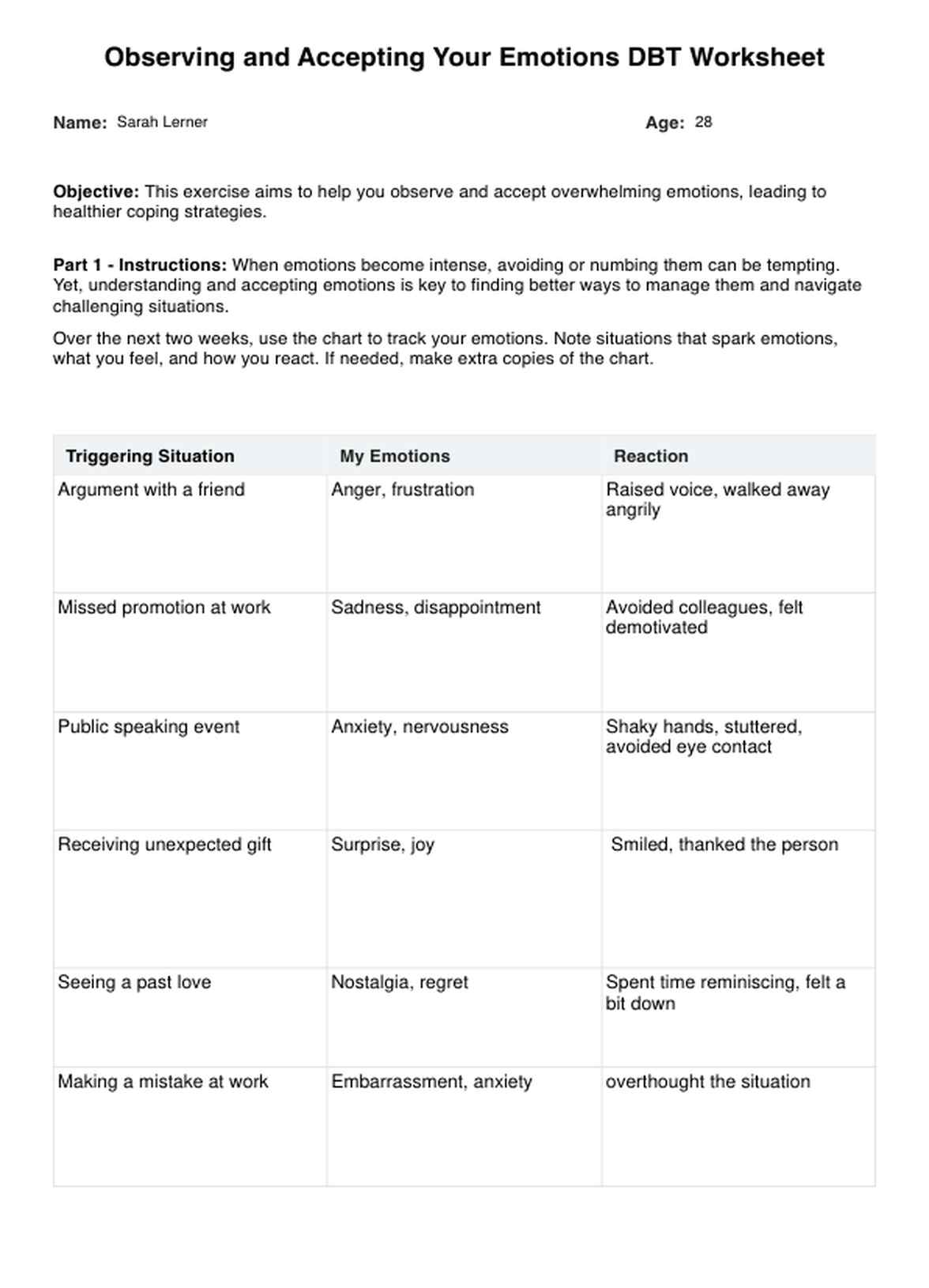

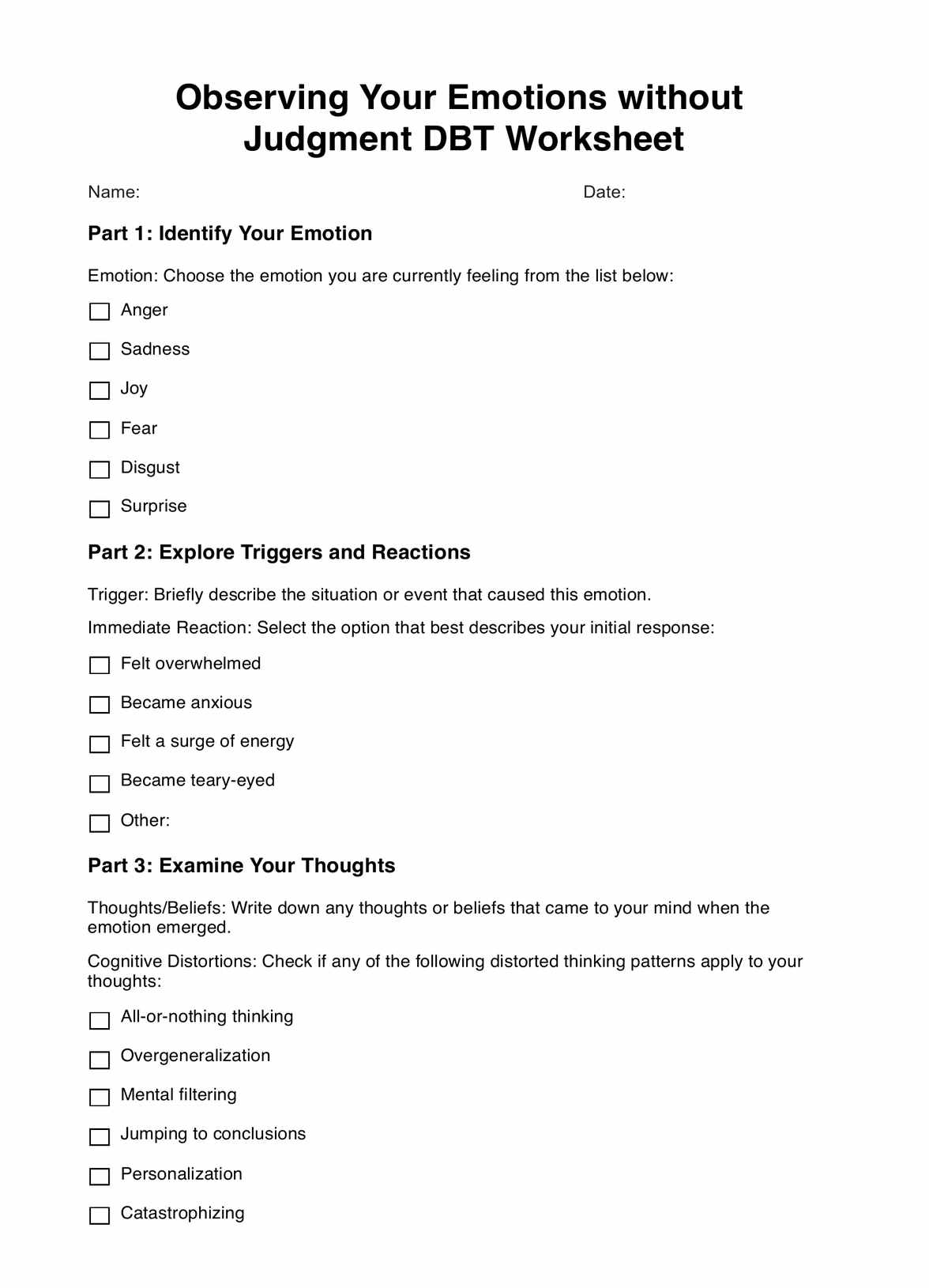
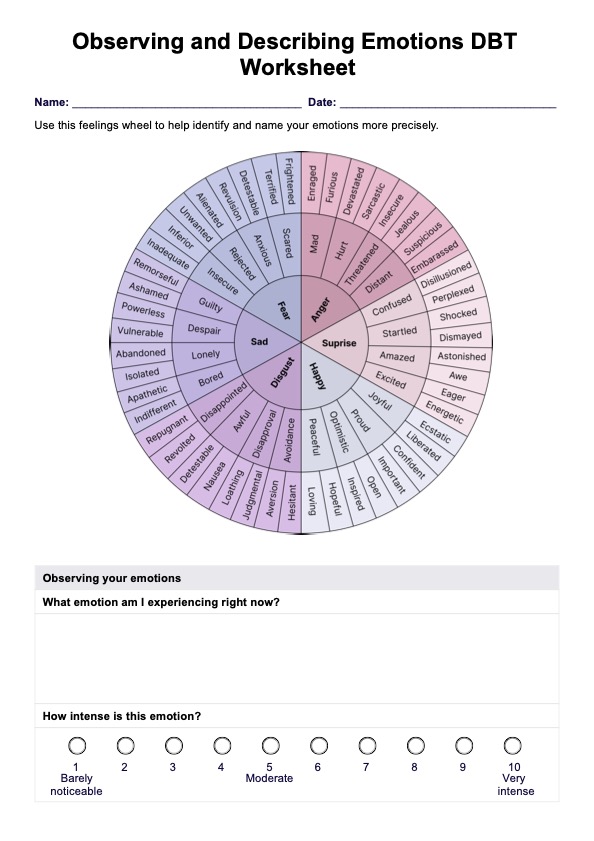








-template.jpg)






